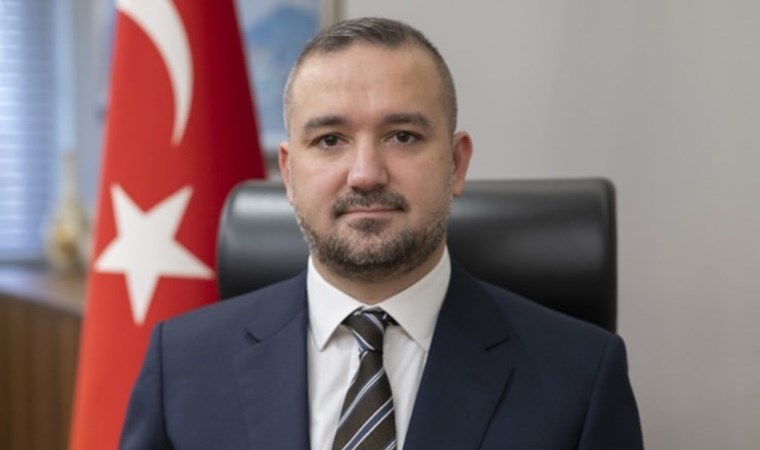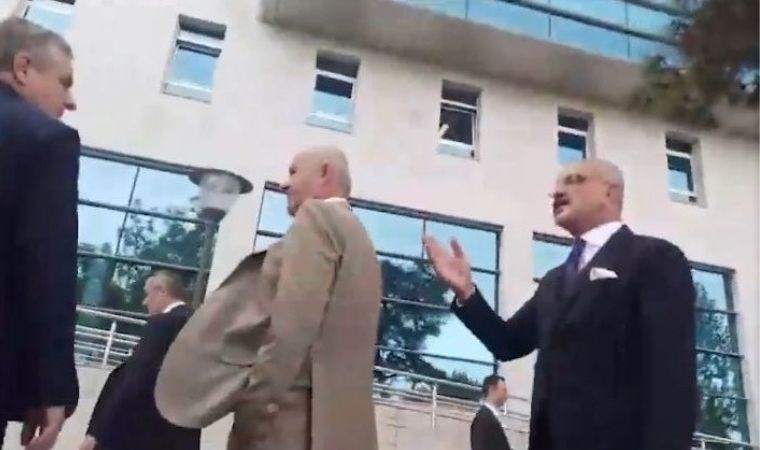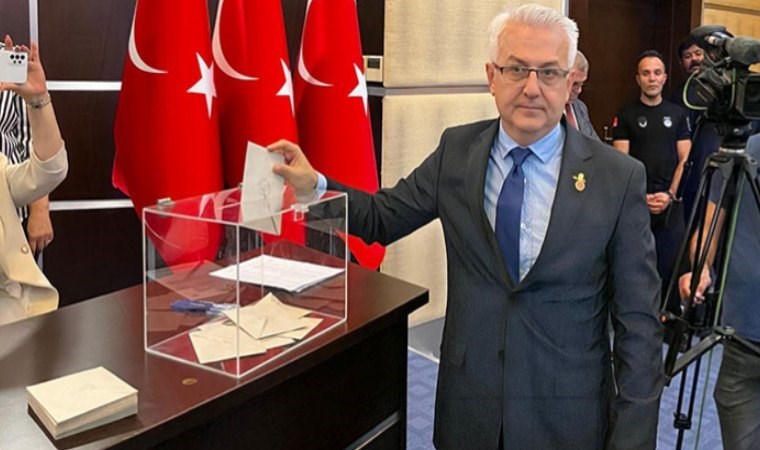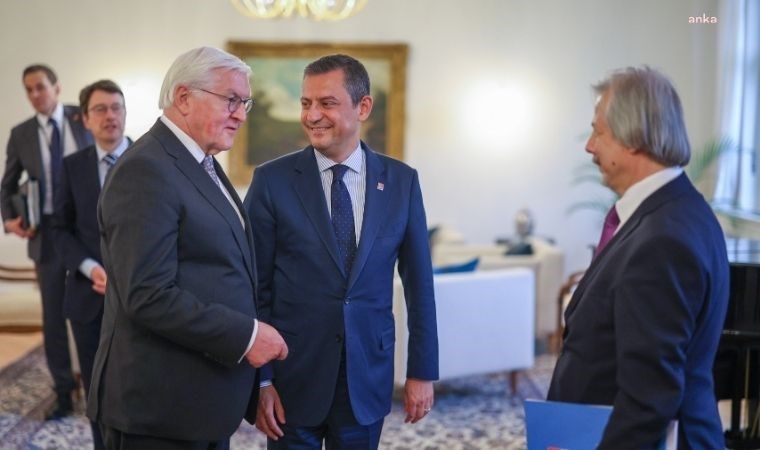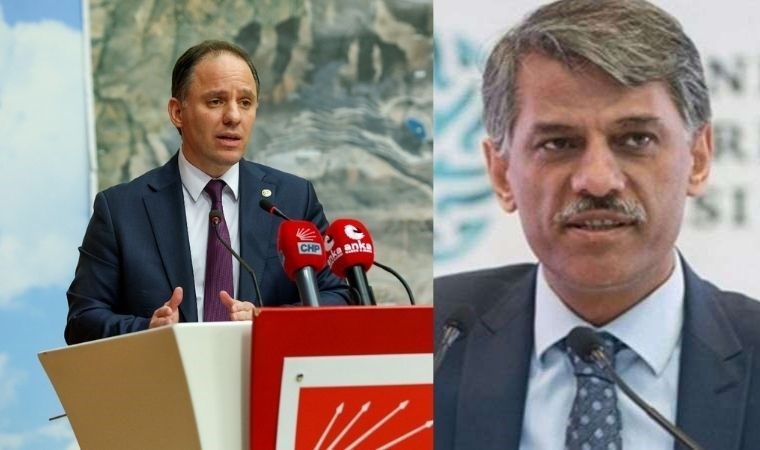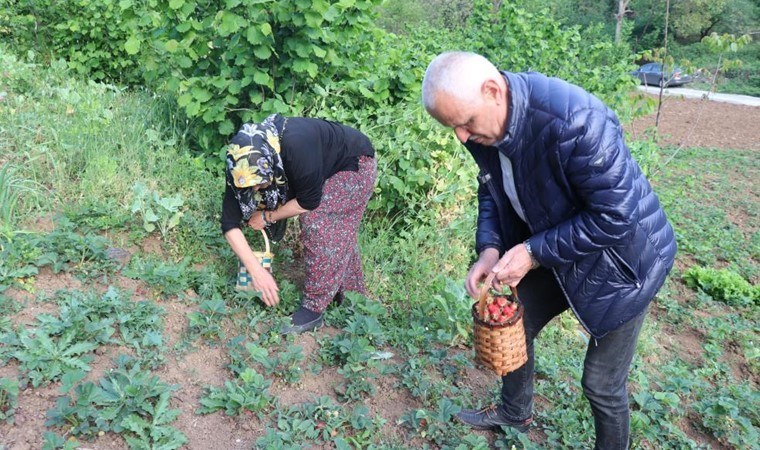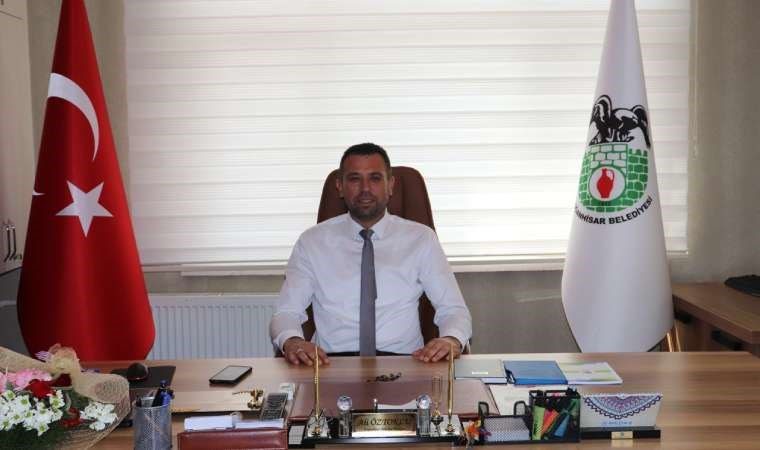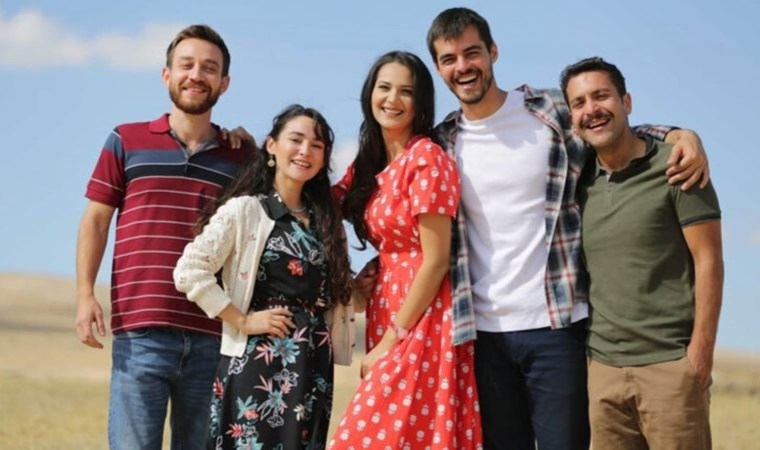Prof. Kaboğlu: Commission is AKP’s gas chamber
According to constitutional jurist Prof. Dr. İbrahim Kaboğlu, who was removed from university under a midnight decree with the force of law a full year ago, it is in fact those in power who are afraid. This is why they subject all kinds of criticism to intimidation. Kaboğlu says, “I say let us move forward under the notion of citizenship and under uniting, universal notions, and we will win. I am hopeful. Let us be hopeful.”
 Prof. Dr. İbrahim Kaboğlu has been apart from his university for a year. His came up as one of the names in a midnight decree with the force of law on 7 February 2017. We met up in Kadıköy to mull over the one year that has passed. Constitutional Association work and information sessions on the Constitution have taken up all his time. His latest book, the 15 July Constitution, is on the shelves in its expanded third impression. Kaboğlu is staunchly opposed to the use of the word “expulsion” with reference to the situation in academia. He describes himself as a “person named in a list annexed to a decree with the force of law.” He has by now succeeded in getting the presiding judge of the court hearing the trial in which he faces charges for being a signatory of the peace declaration to confirm this expression. Saying, “It is not important if I return to university, go hungry or, as a certain person has put it, eat the roots of trees,” he stresses the importance of campaigning for the 2019 elections. He describes the State of Emergency Examination Commission as the “AKP government’s gas chamber.”
Prof. Dr. İbrahim Kaboğlu has been apart from his university for a year. His came up as one of the names in a midnight decree with the force of law on 7 February 2017. We met up in Kadıköy to mull over the one year that has passed. Constitutional Association work and information sessions on the Constitution have taken up all his time. His latest book, the 15 July Constitution, is on the shelves in its expanded third impression. Kaboğlu is staunchly opposed to the use of the word “expulsion” with reference to the situation in academia. He describes himself as a “person named in a list annexed to a decree with the force of law.” He has by now succeeded in getting the presiding judge of the court hearing the trial in which he faces charges for being a signatory of the peace declaration to confirm this expression. Saying, “It is not important if I return to university, go hungry or, as a certain person has put it, eat the roots of trees,” he stresses the importance of campaigning for the 2019 elections. He describes the State of Emergency Examination Commission as the “AKP government’s gas chamber.”
- What has happened in one year?
I continue to race against the minutes. People I meet for the first time still express their condolences. And I say, “Please do not pity me. Pity Turkey’s situation.” If anybody inquires, “Can we do anything?” I say, “Campaign for the elections.” A woman in Samsun hit the nail on the head: “Did we campaign sufficiently before 16 April?” We campaigned, but we did not campaign sufficiently. We did not give it our all. Had we campaigned sufficiently, we would have got “No” up to 55 per cent. We are now confronted with 2019.
- What are we to do in 2019?
We held a poll on 16 April, but not a poll on the Constitution. I call it the plebiscite Constitutional referendum. We call the poll in 2019 an election, but in fact it will be a poll on the Constitution in the guise of an election. Two camps will contest the election. Those who defend 16 April. And those who say, “No, Law number 6771 is not a sustainable text for Turkey. We want to win this election, not for the holders of power, but to transition to a democratic regime and for the Constitution.” The opposition parties must also present the electorate with a constitutional option. Each party should field its own candidate, but, in the second round, must support the one who polls highest. On the day they win the election, that is on 4 November, they must declare, “We captured the election to transition to a democratic constitution.” One side will vote for single-man rule and one side for popular rule. I say the following with conviction. If the opposition parties start with shared goals and set out with a framework text - from what I have seen on my travels, such an expectation is very high. A minimum joint stance on fundamental principles such as judicial independence and the separation of powers. This is the kind of thing people are expecting. A ray of hope. If you ask who is to be the leader you lose from the outset.
- Can you speak a little of your impressions?
Notwithstanding their political identity and ethnic roots, people are beginning to see the common danger in 2019. I infer this from the questions that are asked. But there still remains concern, too. What is this concern? The concern as to whether the vote entering the ballot box will be the same as that to emerge. They asked this question both in Batman and in Samsun. Will the state of emergency continue? Will they relinquish power if they lose? I say this kind of talk leads us into lethargy, despondency and lackadaisicalness. They are working like mad not to relinquish power, using every trick in the book and deeming stratagems of all kinds legitimate. We, conversely, have not exited our torpor in the bid to lose our minority status. I also highlight the three leaders’ honest stances in my speeches.
- What are these stances?
Devlet Bahçeli said that a constitutional crime had been committed on 16 October.
President Erdoğan said that constitutional change was his personal project.
Prime-Minister Yıldırım said on 6 June his support had risen from 30 to 51.4 per cent in seventy days. He did that thanks to the state of emergency. We now have a period of much longer than seventy days in front of us. We must speak of these contradictions. Why did Bahçeli and Erdoğan want us to vote for them? They said the survival of the state was at issue. What condition is the state in now? So, why are they waiting three years to bring the Constitution into effect? Why has Erdoğan’s becoming a party member and the abolition of the Supreme Board of Judges and Prosecutors taken effect, but the Constitution has not taken effect? Is the survival of the state at issue? Or is the survival of one person and his party at issue?
- What kind of country will Turkey be if the opposition loses in 2019?
What will the distribution among local authorities be? What will the distribution in parliament be? Will the one who becomes president manage to gain a majority in parliament? It is a total enigma. A point worth considering is that, had they got 55 per cent on 16 April, they would be sitting comfortably. Now they are on a knife edge. The taker of the horse passes Üsküdar, you know. In the end, they won with the horse formula. I call this horse formula democracy. The issue is not to surrender that horse in 2019.
THE STATE OF EMERGENCY’S AIM IS 2019
- When do you think the state of emergency will be lifted?
I split the state of emergency into four periods. The state of emergency began with the curfew in 2015. It was effectively declared throughout Turkey under the Domestic Security Law. In my view, the justification for the state of emergency ended on 16 April. The entire aim was to change the Constitution. If the coupists have not been countered in one and a half years, it retains no credibility from this time onward anyway. In fact, constitutional change cannot be made under a state of emergency. If, on top of this, you change the regime and system, this is totally impossible. Looking at things we’ve witnessed, a person who is conducting the investigation on the commission set up into the peace academics at Marmara University and is submitting reports to the Council of Higher Education in blatant breach of the law is proposed as a European Court of Human Rights judge by the government. Just think, a person who has added his signature to an unlawful massacre will represent Turkey in Europe. I think that the state of emergency is being used to protect the FETOists within the government and within the state who are office holders and are pro-government, rather than to expose the FETOists. There are many people who to my knowledge are probably FETOists but they are sitting pretty.
- If the justification for it has ended why is it kept going?
To win the 2019 elections. I call this the third stage of the state of emergency. When will the fourth stage be? What the entry into force of the text put to the vote on 16 April will amount to will be a single-person’s permanent state of emergency. Just now there are ministers wandering around, even if just for show. A single-person’s permanent state of emergency will be the fourth period. We still have a chance as to whether we permit the fourth period.
- You spoke of basic contradictions in the rhetoric of the power holders.
No country can alienate itself from its history. It cannot turn its back on its accomplishments. A constitution is a people’s CV. You speak of the local and national and I call this the nation’s. You cannot dispense in an instant with the Tanzimat, Constitutionalism, the Republic and the multiparty period within a state of emergency environment. If you do so, you cannot be local and national. There is no such notion as a Presidential system of governance in Comparative Constitutional Law. Even if there were, there is no government in this text. The presidency will also have been abolished. And there will be no system. As such, I say, “You are twisting the justifications.” I say, “There is no law.” If we can make democracy work, we will return to the law. The democrats and defenders of the rule of law of Turkey are faced with a really arduous task. Our greatest strength is our defence of the law. But we are confronted by a body of people who both disregard the law and democracy and for whom the most fundamental of moral principles are even alien. We must know and keep track of them. We must increase the rings of solidarity. We must open new pages. Our task is truly arduous.
- What is the standing of your application to the state of emergency commission over your expulsion?
When I hear the word “expulsion”, I correct this to “person named in a list annexed to a decree with the force of law.” I have had this entered into the court record. Because the decree with force of law is legally null. It was tainted in the way it was made. It lacked grounds and was made at midnight. I wonder how many of the ministers who undersigned it read this text and signed. How many of them can say, “I am not a Gulenist.” Can Bozdağ say, “I am Bekir Bozdağ. The Gülen brotherhood is not behind me?” I am İbrahim Kaboğlu. I do not believe in anything apart from the law. I have my doubts about the faith of one who does not believe in the effectiveness of the law. The honest Prime-Minister says on 22 February, “I am news thanks to you. Let our lecturers not turn it into an issue of pride and apply to the commission.” My name is mentioned. The commission was to come into operation in a few weeks. What happened?
Massacre of science
- Why will you not hear of your being “expelled” or “removed from post?”
It is an event whose results in terms of both time and space may cause trauma on a global scale for generations to come. (Shows a report he cut out of a newspaper the day before yesterday.) Look at the headline: “The FETO balance sheet in the 18th month. Net expulsion from public service 107,174 people.” Here I am included on the FETO balance sheet. Hitler denied faculty staff members the opportunity to work but they were able to come to Turkey. They were my teachers’ teachers. And we have young people in the prime of their youth, exemplary and capable of contributing to the development of humanity in another country. But they cannot go abroad. This is not just a slaughter of the law and a massacre of thought, it is a massacre of science. If we think about it in a broad sense, it is a crime against humanity. It is not as simple as being able to say, “Kaboğlu was removed from his post with a few months remaining until his retirement.”
- And means of recourse remain blocked.
Apply, apply, apply. You apply to the administrative court, the police, the provincial governate and the Constitutional Court. They all pass the buck. I applied to the state of emergency commission. Not because I expected anything but to be true to myself. They keep asking, “Sir, is new Turkey Hitler, Mussolini or Kenan Evren?” I say none of them. What they call new Turkey is a style of administration that has not really been experienced until now. If there is no court in Turkey with the courage to declare a decree with the force of law null, the European Court of Human Rights will make this declaration. The commission received the application after six months. With the decision awaited, they appoint the chair as Justice Ministry undersecretary. Is there nobody else in the whole of the Republic of Turkey who could have been appointed? Are we a tent state? A banana republic? I would ask if we are a state or not? It is up for debate. You remove the chair from his post and wait two months to find somebody to replace him. On top of this, the second chair is from the State Supervisory Council, a unit affiliated to the President’s office. Well, why are the commission’s decisions secret? Who has it reinstated? Has it made reinstatements thanks to lobbying in the background? Has it reinstated anyone like me, who can be reinstated if the law is simply applied?
- The upshot is that there is as yet no decision about you, isn’t it?
I don’t know. Nothing has reached me. Eight months have passed since the application. We have been waiting for one year. Meanwhile, it occurred to the President that we could eat the roots of trees to stave off starvation. (Laughs) I have commented in a number of places, “No, I will not eat the roots of trees. For two reasons. One, I will not eat the roots of the tree you have massacred. Two, I will not cut down a tree.” But, more importantly I would prefer to eat nothing and die than be subjected to such a procedure. What matters to me is my name being on that list. This is far more serious than not eating. You know, Kenan Evren said, “Should I hang them or feed them?” That was more honest. Looking at the commission, applications will take seven or eight years to be adjudicated. Then you’ll get the chance to go to court. The deceased will have departed and the rest will remain. Their kids will be destitute. This is a status harsher than civil death. Enemy law also has rules. It is nothing like this. The State of Emergency Commission has turned into a kind of gas chamber of the AKP and presidential complex government. It shuts you in there.
INEXPLICABLE UNDER THE LAW
- How are your efforts abroad going?
Two months ago, I participated at the EU Turkey meeting at France’s Orléans University. I am the session chair of the World Constitutionalists Congress to be held in Seoul in six months. But I cannot go. This is inexplicable under the law. It has nothing to do with democracy, in any case. We cannot account for it rationally. There is no crime whatsoever. You’re arbitrarily denied the chance to go. I’ve given up as to its morality, but does rationality not have its “r”? The law does not have its “l”, either. Nor democracy its “d”. But rationality should have its “r”, for crying out loud. I am not alone; there are thousands of people. Just having your name mentioned in conjunction with Adil Öksüz is in any case a demeaning situation. There are a number of files at the faculty. I always gave notice of my lectures and travels. Who looked out for Adil Öksüz? What procedures have been taken against those who sent him away?
- Has written notification reached you until now?
There is correspondence between the Ministry of Justice and the judicial complex. To the effect that no release conditions are in place regarding Kaboğlu. The court holding the trial has made such a notation. I will apply for a passport based on this document.
I WILL ACCEPT THE RULE OF STATUTE, AND THAT’S MISSING, TOO
- Do you think about the Constitution all 24 hours?
Not that much. (Laughs). There are times when it enters my dreams but I try not to get myself thinking about it.
- Had you been one of the Constitutional Court judges whose ruling was not complied with, what would you have done?
In a period in which the Constitution has been degraded to this extent, this is a question that boxes me in a corner as to why, like Don Quixote, I place so much emphasis on the Constitution. We say that the text that will be put to the vote in 2019 is a text that dispenses with the constitutional order. It has partly entered into force, but the emerging situation has to a very large extent caused a loss of faith in the law. The Constitutional Court ruling came out in the midst of all this. The local court’s position is inconceivable in a country whose constitution speaks of the rule of law; it is a situation that cannot at all be contemplated. If I were them, I’d resign and also file a criminal complaint.
- What will be the result of the European Court of Human Rights’ intervention in this crisis?
Maybe the burning of bridges with Europe that the politicians hanker after. Application to the European Court of Human Rights is something favourable in personal terms, but you have to look at it in these terms, too. In a place where there is no law, this in any case means there is no Constitution. Our only hope is democracy; the election. In my eyes, there is currently no solution apart from a conscious struggle for democracy. Expert knowledge, civil society organisations’ vigour and political parties – ties between these three must be kept up. We are thoroughly vindicated. We are vindicated legally and we are vindicated democratically. No other way is open to us apart from taking this to the 2019 ballot box with all our decisiveness, whatever the cost.
- How could those judges have said, “We are not complying with the Constitutional Court ruling?”
Had they not had the power of Ankara, of politics, behind them, no such result would have emerged. This is an act of audacity, after all. When they spoke of having cleared out the FETOists, we told them, “This may have significance if you return to the law and merit.” The impressions I gain from the appointments of judges and prosecutors are different. They are asked if they worked in the party. Recall the special jurisdiction judges who years ago did not send the Chief of the General Staff’s file to the Constitutional Court. Two or three years later, it was said to be a conspiracy. If so, what is this? This is more serious. You are doing this in full view. So, I am unable to account for this under the law. This is also what upsets me the most. I am incapable of explaining it. Under such circumstances, when they ask if such a state of affairs is not contrary to the principle of the rule of law, I say, “What rule of law?” I say, “I will accept the rule of statute, and that’s missing, too.”
I AM HOPEFUL. LET US BE HOPEFUL.
- Finally, has speaking of peace ever brought so much oppression?
It has even become a crime to quote an article of the Constitution we call irrevocable. In 2003, the motion for military force did not make it through parliament. Those who wished it to pass said, “Let us open our territory so that we do not have to send little Mehmet into the region in ten to fifteen years’ time.” Now little Mehmet is there. Now they tell us not to criticise. This means there is a need to criticise. There should be no fear of criticising. The fundamental danger is to make people feel that it is dangerous to post an article of the Constitution, even in quotes, on social media. This situation may console rulers with the thought, “We’ve scared society and brought it to its knees,” but, if you ask me, they are the ones who are actually afraid. Fear for their posts. If it has gone as far as fearing the posting of the quote from the person who founded the society and country, “Peace at home, peace in the world,” this administration’s power is simply de facto power. It has nothing to do with the law. We’ve seen this plenty of times in history. The most powerful administrations are de jure administrations. De facto administrations may appear to be very powerful, but have always been transient. The power just now is de facto not de jure. This must give us hope. I speak of citizenship on all occasions, without drawing any distinction among the democrats of Turkey. I speak of equality and secularism. This is uniting for us. I say let us now forget the rest and move forward under the notion of citizenship and under uniting, universal notions, and we will win. I am hopeful. Let us be hopeful.

En Çok Okunan Haberler
-
 'Müzakere edilmez!'
'Müzakere edilmez!'
-
 ‘Haddini bilsin, tepemin tasını attırmasın’
‘Haddini bilsin, tepemin tasını attırmasın’
-
 Merkez Bankası faiz kararını açıkladı
Merkez Bankası faiz kararını açıkladı
-
 CHP’nin yükselişi sürüyor
CHP’nin yükselişi sürüyor
-
 'Bir milletvekilliğine her şeyi sattın'
'Bir milletvekilliğine her şeyi sattın'
-
 Kepez Belediyesi'nde yeni başkan belli oldu
Kepez Belediyesi'nde yeni başkan belli oldu
-
 Neler konuşuldu?
Neler konuşuldu?
-
 'AK Partili bakan yardımcısının toplam maaşı...'
'AK Partili bakan yardımcısının toplam maaşı...'
-
 Dilan ve Engin Polat çiftinin yargılandığı davada karar
Dilan ve Engin Polat çiftinin yargılandığı davada karar
-
 Mehmet Ali Yılmaz'ın ailesinden açıklama
Mehmet Ali Yılmaz'ın ailesinden açıklama


